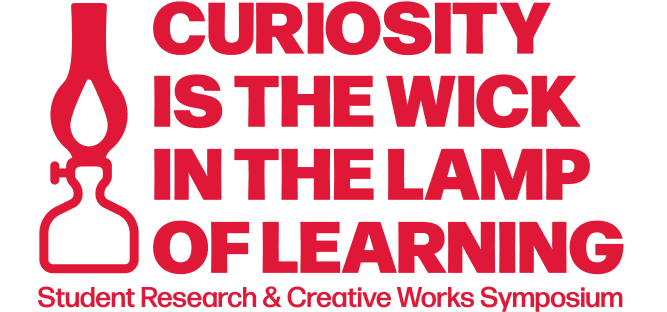Faculty Mentor
Julie Swets, PhD.
Presentation Type
Poster
Primary Discipline of Presentation
Psychology
Abstract
Research indicates that nostalgia, “a sentimental longing or wistful affection for the past,” increases perceptions of social support and meaning in life. The proposed study is intended to complement the existing cross-sectional studies via examination of nostalgia’s effects over time. This study will measure the effects of weekly nostalgia interventions on loneliness and well-being over a period of three weeks.
Participants will engage in three weekly nostalgia interventions in which they write about and reflect upon a personally significant nostalgic memory. After each weekly session, participants will complete measures for loneliness as well as two key areas of well-being: perceived social support and meaning in life. We expect to observe an increase in well-being and a decrease in loneliness over time. Furthermore, we will examine an interaction between time and trait loneliness. We hypothesize that over time participants will report lower loneliness and greater well-being after the nostalgia intervention, with strongest effects for participants whose baseline loneliness is high.
Prior research has established the effectiveness of nostalgia as a potent resource for improving well-being, and this study will expand on this by exploring its effects over time. The findings from the study will be highly applicable for individuals who cannot access expensive therapy or other treatments for loneliness. Positive-psychology-inspired interventions like this may provide an effective avenue to bypass some financial and cultural barriers to therapy and overall well-being improvement.
Recommended Citation
Burdick, Josh R., "Impacts of Nostalgia Intervention on Wellbeing Over Time: A Proposed Study" (2024). 2024 Symposium. 1.
https://dc.ewu.edu/srcw_2024/asy_2024/asy_2024/1
Creative Commons License

This work is licensed under a Creative Commons Attribution-NonCommercial-No Derivative Works 4.0 International License.
Impacts of Nostalgia Intervention on Wellbeing Over Time: A Proposed Study
Research indicates that nostalgia, “a sentimental longing or wistful affection for the past,” increases perceptions of social support and meaning in life. The proposed study is intended to complement the existing cross-sectional studies via examination of nostalgia’s effects over time. This study will measure the effects of weekly nostalgia interventions on loneliness and well-being over a period of three weeks.
Participants will engage in three weekly nostalgia interventions in which they write about and reflect upon a personally significant nostalgic memory. After each weekly session, participants will complete measures for loneliness as well as two key areas of well-being: perceived social support and meaning in life. We expect to observe an increase in well-being and a decrease in loneliness over time. Furthermore, we will examine an interaction between time and trait loneliness. We hypothesize that over time participants will report lower loneliness and greater well-being after the nostalgia intervention, with strongest effects for participants whose baseline loneliness is high.
Prior research has established the effectiveness of nostalgia as a potent resource for improving well-being, and this study will expand on this by exploring its effects over time. The findings from the study will be highly applicable for individuals who cannot access expensive therapy or other treatments for loneliness. Positive-psychology-inspired interventions like this may provide an effective avenue to bypass some financial and cultural barriers to therapy and overall well-being improvement.



